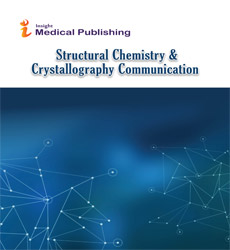Abstract
Microwave applications in petroleum processing
Statement of the Problem: Microwave energy is successfully being used in the petroleum industry (inspecting coiled tubing/ line pipe, measuring multiphase flow, and the mobilization of asphaltic crude oil). Depletion of conventional crude reserves is accompanied by growing economic demand for various fuel types. In Canada, efforts have intensified to develop microwave irradiation technology for in situ enhanced oil recovery of large deposits of heavy oil/bitumen. Of the estimated 30 billion barrels of heavy oil in place, about 26 billion barrels are considered unrecoverable using current technology. Objectives included studying microwave process conditions that affect the upgrading of heavy oil/bitumen to synthetic crude, achieve up to 50% desulphurization and obtain preliminary data on process design and economics. Methodology & Theoretical Orientation: Typical experiments including mixing of oil with one or more additives, and exposing to various dosages of low pressure microwave radiation. The microwave reactor was constructed from a domestic microwave oven and modified to allow for the accommodation of a mixer, temperature monitor and pressure in the reactor and interfaced with a desktop computer for data acquisition. Power level and irradiation intensity were at level high. Findings: Results obtained with GC-MS showed evidence of fragmentation process in heavy oil/bitumen samples but, no significant change in molecular structure for majority of the light crude oil samples after being subjected to microwave irradiation. Average reduction in sulfur content of 16% and 39.4% were obtained for heavy oil and light oil, respectively. Conclusion & Significance: This work has shown strong indications for the employment of microwave technology not only for hydrocarbon extractions but for in situ upgrading and field upgrading of heavy oil/bitumen desulphurization of crude oil, and future upgrading of coal and oil shale. Overall, microwave technology presents the best alternative, economically and environmentally, to existing technologies for enhanced oil recovery operations and processing.
Author(s):
Adango Miadonye and Brittany MacDonald
Abstract | PDF
Share this

Google scholar citation report
Citations : 275
Abstracted/Indexed in
- Google Scholar
- China National Knowledge Infrastructure (CNKI)
- Directory of Research Journal Indexing (DRJI)
- WorldCat
- Geneva Foundation for Medical Education and Research
- Secret Search Engine Labs
- CAS (Chemical Abstracting Services)
Open Access Journals
- Aquaculture & Veterinary Science
- Chemistry & Chemical Sciences
- Clinical Sciences
- Engineering
- General Science
- Genetics & Molecular Biology
- Health Care & Nursing
- Immunology & Microbiology
- Materials Science
- Mathematics & Physics
- Medical Sciences
- Neurology & Psychiatry
- Oncology & Cancer Science
- Pharmaceutical Sciences

